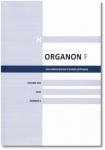Self-Expression in Speech Act
Self-Expression in Speech Act
Author(s): Maciej WitekSubject(s): Semantics, Philosophy of Language, Rhetoric
Published by: SAV - Slovenská akadémia vied - Filozofický ústav SAV
Keywords: expressive norms; illocutionary communication; self-expression; speaker meaning; speech acts;
Summary/Abstract: My aim in this paper is to examine Mitchell S. Green’s notion of self-expression and the role it plays in his model of illocutionary communication. The paper is organized into three parts. In Section 2, after discussing Green’s notions of illocutionary speaker meaning and self-expression, I consider the contribution that selfexpression makes to the mechanisms of intentional communication; in particular, I introduce the notion of proto-illocutionary speaker meaning and argue that it is necessary to account for acts overtly showing general commitments that are not ‘marked’ as being specific to one or another illocutionary force. In Section 3, I focus on Green’s account of expressive norms and argue that their function is to stabilize rather than constitute the structure of illocutionary signalling systems; moreover, I examine critically Green’s idea according to which expressive norms enable us to indicate the force of our speech acts and suggest that they play a key role in the mechanisms for epistemic vigilance. Finally, in Section 4, I elaborate on the idea of discourse-constituted thoughts-or, in other words, thoughts that exist in virtue of being expressed in making certain conversation-bound speech acts-and use it to develop a more comprehensive model of the expressive dimension of speech acts.
Journal: Organon F
- Issue Year: 28/2021
- Issue No: 2
- Page Range: 326-359
- Page Count: 34
- Language: English

